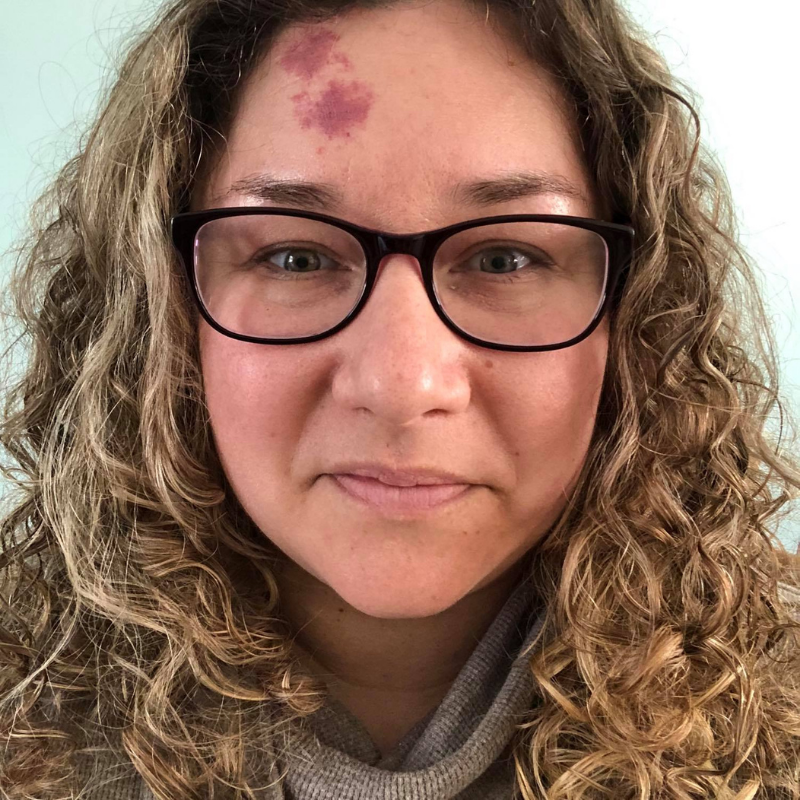The body of a three-year-old Syrian washed up upon the shores of the Mediterranean Sea in the fall of 2015. The photographer’s poignant and heartbreaking picture went viral, thus awakening global awareness of the plight of those fleeing their war-torn land.
As a mother of an almost three-year-old at the time, the image stuck with me. I began to lament about the tragedy of war and displacement. I researched and read articles about migrants and the over-population of refugee camps.
My heart was heavy over this issue, and I said to God, “Why can’t I stop thinking about this?”
I prayed. I mailed supplies to a humanitarian aid organization in Europe — things like undergarments, socks, tarps, string, etc. But I could not get James 1:27 out of my head: “Pure and faultless religion is this: To look after orphans and widows in their distress…”. I lost sleep thinking about the refugee crisis. Out of the privilege of my safety, I began to pray in earnest “Your kingdom come … on earth as it is in heaven” (Matthew 6:10).
Weeks later, our city newspaper published an article about how the mayor hoped to encourage refugees to settle in our small town of Brockville, Ontario. Our prime minister had created an extra refugee resettlement program in order for Canada to respond to the Syrian humanitarian crisis. This program involved churches or community groups partnering with the government to provide financial aid and resettlement support on the ground for a commitment of one year. The government would give roughly half the money needed to support a refugee family and the church or community group would fundraise the other half.
Upon reading this, an urgency came upon me to get our church involved. My grandmother’s mantra, “Do what you can, with what you have, where you are,” came to mind. I felt God was leading me to approach my senior pastor and church board about the possibility.
They said yes on the condition that we partner with another local church so such a big undertaking would not fall solely on our shoulders. We met with the pastor of our local sister church, Centennial Road Church, and got the green light, as well as the go-ahead from our district superintendent and local board of administration.
With the help of World Hope International Canada, I filled out the appropriate paperwork to sponsor a family through this program. The timeline for the proof of financial capability meant that we needed to raise $24,000 in less than two months. I was comforted by the Scripture, “If the purpose or activity is of human origin, it will fail; but if it is from God, you will not be able to stop it” (Acts 5:38-39, paraphrased.)
We learned that though our church is small (average around 150), its people are generous! They responded to our one-Sunday special project offering in earnest. By Christmas time, along with our partner church, the money was there.
Next, I recruited a resettlement team of committed volunteers — many of us immigrants ourselves, from Brazil, Ireland and the U.S. We delegated responsibility according to strengths. We would need drivers to drive the family for doctor and dentist appointments, ESL classes, grocery shopping and other outings. There are so many pieces to resettling that had to be taught, like how to pay for things electronically instead of cash. Someone needed to monitor medical needs, school communication, ESL scheduling, technology needs, budgeting and paying bills, banking, insurance, etc.
The family that had been selected for our sponsorship was delayed in arriving by almost a year. When they finally did arrive, we had very little advance notice. A hospitable couple in our church agreed to house the family in the guest rooms of their own home until we could find suitable and affordable housing. I was moved to tears by this couple’s radical hospitality — their loss of privacy, hourly assistance and companionship for our new arrivals in a foreign land. They truly made room to welcome strangers into their home.
Our team quickly learned how difficult it can be to find an affordable apartment. Though it is illegal to “screen” potential tenants based on race or ethnicity, as soon as we expressed that we were looking for housing for Syrian newcomers, many landlords were hesitant to rent and found a legal “out.” In the end, because our newcomer family did not have a tenancy history or a North American credit history, no landlord was willing to rent to them.
My husband and I ended up personally co-signing the lease as guarantors, contrary to Proverbs 22:6, “Don’t agree to guarantee another person’s debt or put up security for someone else.” Signing meant we were legally responsible for any property damage or failure to pay rent. We did this, because like in the parable of the Good Samaritan (Luke 10:30-37), providing hospitality is more important than not assuming risk.
The family our team helped has now happily resided here for almost four years. They are grateful to be living in a place of safety — a place that presents opportunities for the futures of their three children. They have adjusted well to our small community, and we are better for their presence.
Leading this resettlement team is easily one of the best things I have done. Our churches were invigorated by this volunteer effort. We helped the kingdom of God become closer to realization here as it is in heaven simply because we made an effort to provide hospitality to strangers in distress.
How is God urging you to welcome someone “outside” into your “inside?” How is the Spirit asking you to make room?

Joanna Perry
Pastor Joanna Perry serves as pastor of outreach and children’s ministries at Brockville Wesleyan Church in Brockville, Ontario. Perry is an immigrant to Canada herself. She is married to Kirk and is mother to two elementary-aged sons.

